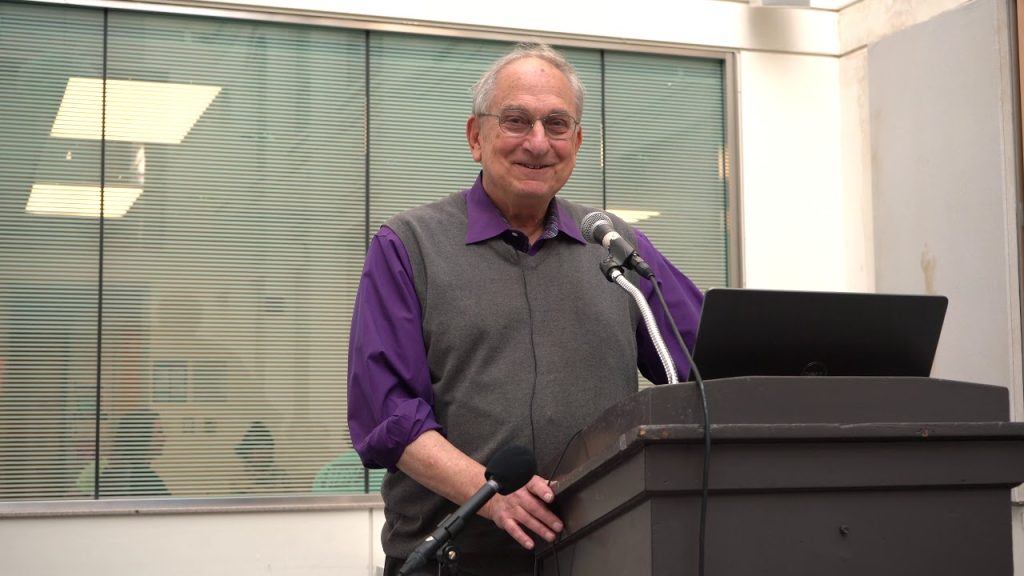The concept of “Shared Authority” dominates our two readings for this week, both of which were written by Michael Frisch. First, we read Frisch’s chapter titled “Urban Public History in Celebratory Contexts: The Example of the “Philadelphia’s Moving Past” Project” in A Shared Authority: Essays on the Craft and Meaning of Oral and Public History, published in 1990. Then we moved on to Frisch’s article titled “From A Shared Authority to the Digital Kitchen, and Back” in Letting Go?: Sharing Historical Authority in a User-Generated World, published a generation later in 2011. Frisch examines Shared Authority in the first article from a project-planning angle, then in the second article from the perspective of digital content management.

What is “Shared Authority?” This is a term which has appeared in several readings from previous weeks. Admittedly, when I first read the term, I thought shared authority was something the oral historian extended to the interviewee. A historian working with documents claims the authority to interpret the meaning of those documents, especially ones with deceased authors. The work of interpreting and analyzing written sources can take place while alone in a quiet room. Oral history, on the other hand, is co-creative and unable to exist without dialogue, so naturally I thought oral historians shared some of their authority as interpreters of historical meaning/significance with those whom they interviewed. Thinking of Brecher’s imperative to “regard your source as someone who is at least your equal,” I thought it was primarily about having respect for your sources.[1]
Well, Frisch took me to task this week.
“We don’t have authority to give away,” Frisch bluntly declares, reminding readers that historians are not the sole interpreters in oral and public history. When oral history is conducted properly, Shared Authority is inherent within the process and emanates equally from interviewer and interviewee.[2]
In Frisch’s 1990 essay, he favors experimenting with an unconventional social-scientific approach to public history, describing an ambitious project for Philadelphia’s tricentennial. The project called for a decentralized, modular project which would interpret Philadelphian history on a neighborhood-by-neighborhood basis, starting with a street festival where community members could contribute data to interactive exhibits. The festival would have served as the launch pad for establishing sustained interactions among six Philadelphian neighborhoods, broader analysis of patterns which arose from the data-gathering, creating a “Historymobile” vehicle which could travel between those neighborhoods to deploy interactive exhibits directly onto the street, and a starting a program of cross-neighborhood discussion-group tours. This hypothetical project is a good example of Shared Authority because it relied on community participation to gather the data it needed, and also because it avoided flattening neighborhood histories or shoehorning them into city-wide narratives. Unfortunately, most of the project would not come to pass.

Examples of resistance to Shared Authority from within academic circles can be found in both readings. Because Frisch could not secure crucial grant funding, most of his Philly tricentennial project was scrapped, leaving the Historymobile as the sole surviving remnant. Chief among the complaints levied by panelists who responded negatively to Frisch’s proposal was the well-entrenched belief that “a public street festival was not a serious locale for historical presentation, in contrast presumably to a museum.”[3] In Frisch’s more recent article, he elaborates upon his definition of Shared Authority as something which is not only inherent, but also exists in degrees. In other words, the Shared Authority inherent within an oral or public history project can be strengthened or weakened. As an example, Frisch recalls attending a program about railroad workers in which the workers spoke for the first half, a panel of scholars spoke for the second half, and at no point did the program place the workers in dialogue with the scholars. The railroad workers and scholars still co-created the event, but allowing them to converse directly with each other would have strengthened the project’s Shared Authority.[4]
Lack of easy accessibility and the crudeness of data-navigation tools hinder historians from getting the most out of oral history. Frisch laments the absence of acceptable middle ground between the opposing extremes of “raw” oral history audio/transcripts bursting at the seams with unorganized data versus “cooked” scholarly products with plenty of analysis but only a tiny fraction of the available data. Perhaps the kitchen, where scholars transform “raw” materials into “cooked” products, need not be such a liminal space? Should oral history projects exist primarily to provide material for academic publications, or should the ability of scholars to produce academic work from “raw” oral history be considered more of a mutually reinforcing byproduct? In the future, could a more refined AI assistant, capable of drawing more abstract associations between data-points compared to a search engine which requires specific keywords and phrases, “listen” to countless hours of audio and provide the kind of non-linear, non-alphabetic, theme-based access Frisch dreams of?
[1] Jeremy Brecher, “How I Learned To Quit Worrying And Love Community History: A ‘Pet Outsider’s’ Report On The Brass Workers History Project,” Radical History Review 1984, nos. 28–30 (1984): 197, https://doi.org/10.1215/01636545-1984-28-30-187.
[2] Michael Frisch, “From A Shared Authority to the Digital Kitchen, and Back,” in Letting Go?, 1st ed., ed. Bill Adair et al. (Routledge, 2020), 127, https://doi.org/10.4324/9780429333743-14.
[3] Michael Frisch, A Shared Authority: Essays on the Craft and Meaning of Oral and Public History (State University of New York Press, 1990), 233.
[4] Frisch, “From A Shared Authority to the Digital Kitchen, and Back,” 128.
